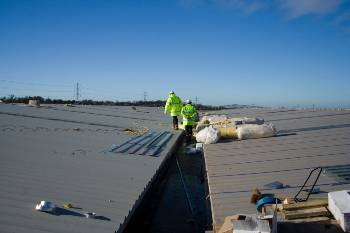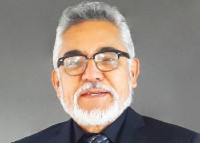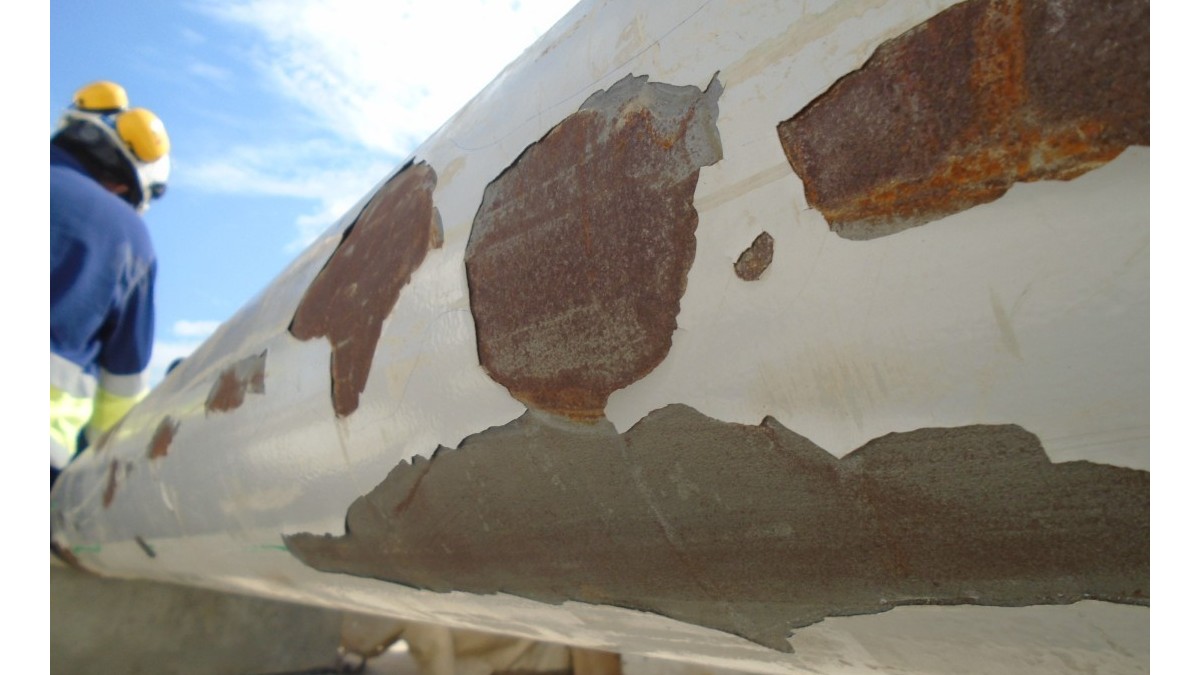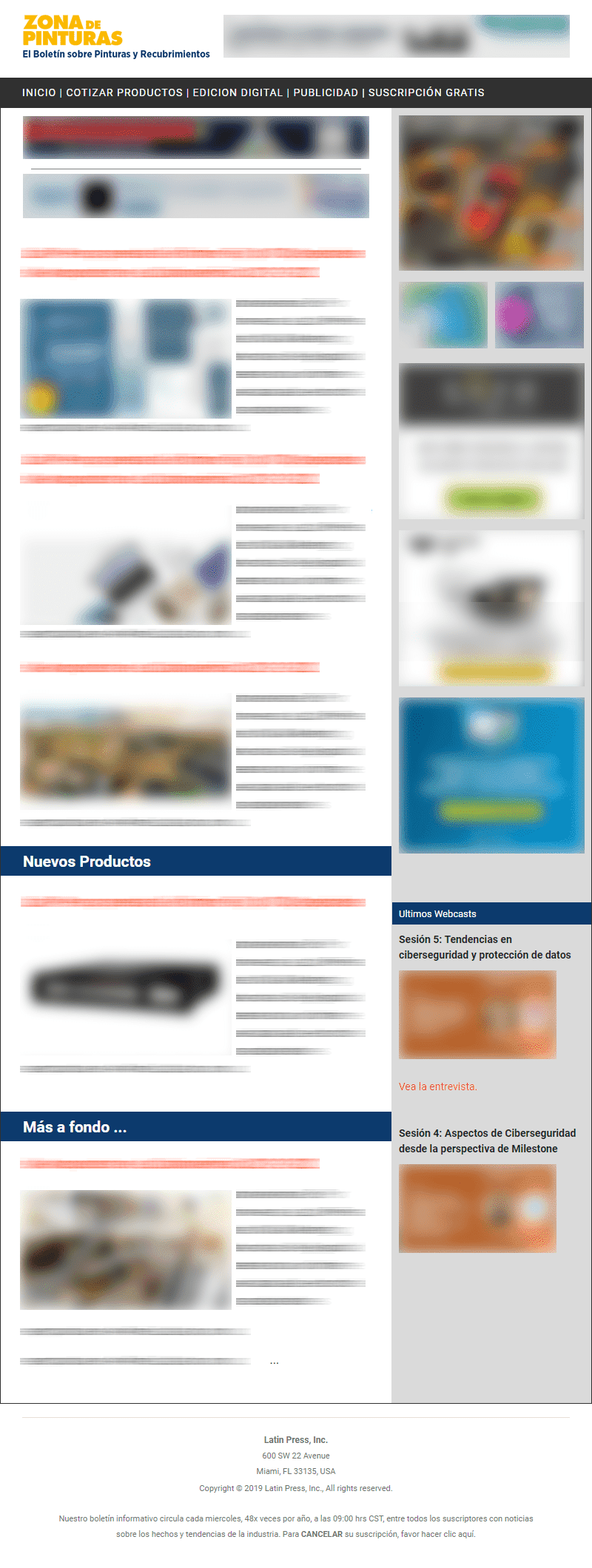In the quality management of corrosion control projects with coatings, the differences between both concepts must be distinguished.
by Eng. Abel De la Cruz Perez*
Quality auditing is a systematic, independent and documented process to obtain objective evidence from the organization's quality management system (QMS) and evaluate it objectively in order to determine the degree to which the standards established for the achievement of the objectives of the organization or project are effectively met.
The audit process is described in ISO 19011:2018 "Guidelines for Audit Management Systems", and is the reference of all internal and external audit processes of the different management systems based on ISO standards. Among them are ISO 9001 (Quality), ISO 14001 (Environment), ISO 27001 (Information Security), ISO 45001 (Health and Safety).
In a corrosion prevention and control project that has the implementation of a quality management system (QMS) in its processes, the audit is an indispensable tool for its maintenance and compliance with the requirement of continuous improvement present in the ISO 9001: 2018 Standard "Quality Management Systems".
 The process-focused auditor reviews documented procedures, standards, and processes implemented. And, most importantly, look for logs - proof of the execution of processes. The important result in the audits is the list of non-conformity (minor and major), which allows defining the action plans to improve the implemented QA system.
The process-focused auditor reviews documented procedures, standards, and processes implemented. And, most importantly, look for logs - proof of the execution of processes. The important result in the audits is the list of non-conformity (minor and major), which allows defining the action plans to improve the implemented QA system.
However, the term Quality Control Inspection (activity that dates back more than 50 years in the paint industry and that is insufficient to ensure quality in a competitive world) is focused on measuring or testing the product (treated surface) in the production process (surface preparation and application of paints).
This way it can be determined whether or not it complies with the standard values established in the project (film thickness, roughness, environmental conditions, salt measurement, adhesion, drying, curing, etc.), in order to prevent the exit of defective products, detecting deviations, correcting or rejecting them.
 This, instead of performing a root cause analysis of the failures or deviations to determine the factors that have caused the nonconformity and that, in addition to correcting them, prevention actions are implemented in the process to prevent them from happening again and then monitor the changes to improve and standardize the QMS. As it would be done in a quality audit process.
This, instead of performing a root cause analysis of the failures or deviations to determine the factors that have caused the nonconformity and that, in addition to correcting them, prevention actions are implemented in the process to prevent them from happening again and then monitor the changes to improve and standardize the QMS. As it would be done in a quality audit process.
Consequently, AUDIT should not be confused with INSPECTION, since in a nutshell:
· An audit is a structured, independent process used to determine whether project activities effectively comply with organizational and project policies, processes, and procedures.
· Inspection includes activities such as measuring, examining, and validating to determine whether work and results meet product acceptance requirements and criteria.
If we really want to obtain results of excellence in quality (durability of the protection systems and consequently the integrity of the assets), productivity and profitability in the current Corrosion Control Projects, then it is necessary to promote decisively and without particular interests, improve the way of managing quality in this kind of projects.
 You must move as soon as possible, from the Quality Control Inspection to the implementation, maintenance and improvement of a Quality Management System based on the international standard ISO 9001, hand in hand with the QUALITY AUDITS (ISO 9001- ISO 19011 Standards), which will give way to the improvement of your processes and the reduction of costs that this entails.
You must move as soon as possible, from the Quality Control Inspection to the implementation, maintenance and improvement of a Quality Management System based on the international standard ISO 9001, hand in hand with the QUALITY AUDITS (ISO 9001- ISO 19011 Standards), which will give way to the improvement of your processes and the reduction of costs that this entails.
It should be noted that there are different types of quality audits, depending on what is audited, who is audited or even the place from where the audit is practiced.
In the field of ISO standards, the most popular audits according to the auditor are first-party, second- and third-party audits.
First-party audit
Also called internal audit, they are voluntary and are performed within an organization to measure strengths, weaknesses and performance. They are decisive for the continuous improvement of a Quality Management System based on ISO 9001.
Usually who performs this function is an employee of the organization or company that executes the project. The results of the process are capitalized by the company that provides the services.
Second party audit The second part audit is an external evaluation that is carried out at the request of a client or those who have contracted the service. The second-party audit verifies that the audited organization is doing what is expected, in accordance with a contractual obligation incurred.
The second part audit is an external evaluation that is carried out at the request of a client or those who have contracted the service. The second-party audit verifies that the audited organization is doing what is expected, in accordance with a contractual obligation incurred.
The second part audit is usually performed by a consulting organization specialized in ISO 9001 Quality Management and I may or may not be a specialist in corrosion control technology.
In case it is not, you can also count on the team of auditors with the support of a Technical Corrosion Control Expert.
Third party audit It is the certification audit. It can only be performed by auditors who belong to an ISO-accredited certification body. An organization faces this type of audit when it has implemented a Quality Management System based on ISO 9001, and expects to certify it, regularly, every three years.
It is the certification audit. It can only be performed by auditors who belong to an ISO-accredited certification body. An organization faces this type of audit when it has implemented a Quality Management System based on ISO 9001, and expects to certify it, regularly, every three years.
Follow us for more information and proposals for improvement in the execution of Corrosion Control Projects.
Bibliographic Consultation:
Manual of the International Specialization Program of INFOCORROSION.COM: "Auditor of Quality Assurance of Coatings ISO 9001- ISO 19011" in Corrosion Control Projects.
 *Director of Innovation in Corrosion Management, Coating Technology, Quality Management; Certified International Infocorrosion Instructor.
*Director of Innovation in Corrosion Management, Coating Technology, Quality Management; Certified International Infocorrosion Instructor.
E-mail: abeldelacruz@americanconsultperu,com
Whatsapp: +51-1-996885664


























Leave your comment